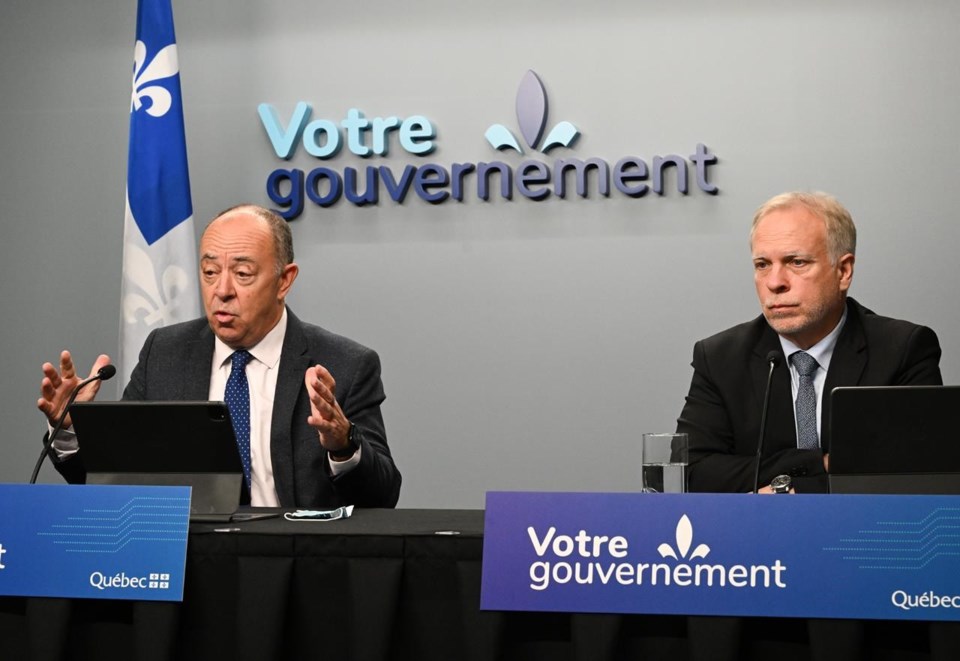MONTREAL — Quebec's struggling hospital emergency rooms could be faced with an even bigger wave of patients as flu season takes hold, health officials said Wednesday.Â
Public health director Dr. Luc Boileau warned that Quebec, like other places in Canada, is facing a trio of respiratory viruses: COVID-19, influenza and respiratory syncytial virus, or RSV.
"We have a predictable rise in COVID; influenza is setting in right now," he told a news conference in Quebec City.Â
"With other viruses, such as respiratory syncytial virus, we have a spicy cocktail of viruses in the next weeks, if not the next months."
Boileau said RSV accounts for a significant percentage of pediatric hospitalizations due to a "catch up" effect, as more children who weren't exposed to the virus in the last couple of years are getting sick all at once. He said the start of flu season in Quebec is lagging behind other places, such as Ontario, but he said cases will almost certainly rise. Data from other jurisdictions suggests it could be a tougher flu season than normal, he added.
While the COVID-19 situation in the province is stable, he said officials are concerned by the more transmissible BQ.1.1 variant, which is on a "continuous rise" in the province.Â
Boileau and Health Minister Christian Dubé recommended that people of all ages wear masks in crowded public places, except for daycares and schools. Dubé also asked people to follow basic hygiene practices such as handwashing and avoiding others and masking when ill.
"Our health system is fragile at the moment, especially with the trio of viruses whose effects are starting to add up in our hospitals," the health minister said.Â
Dubé and Boileau were asked why mask-wearing is only a recommendation and not a rule — as it was during the COVID-19 pandemic. Boileau said mask mandates have to considered "really delicately" because of the "pressure" put on citizens, adding that mandates aren't considered necessary at this point.
They were also asked why the province is not offering free flu shots to the general population. The two health officials responded that they were carrying out a "targeted" campaign aimed at reaching those most at risk, as the province's immunization committee recommended.Â
According to IndexSante.ca, a website that tracks hospital occupancy, emergency rooms on Wednesday were above capacity in many regions, with the average provincewide occupancy at 123 per cent.
Dubé said the province is moving forward on the three solutions he announced earlier this month to reduce emergency room overcrowding, including opening nurse-run clinics in Montreal and expanding the 811 health-care phone line to allow parents to consult a medical professional before they take their children to hospital.
He said the province has had considerable success in freeing up beds occupied by patients who are too sick to be home alone but no longer need hospital-level care. Dubé said "fluidity teams" are being deployed to hospitals to further ensure that people aren't occupying beds when their level of care doesn't require them to.
Daniel Desharnais, an assistant deputy health minister, said the province is expecting "an increase in crowding in emergency rooms," despite the actions being taken by the province to alleviate the strain. Some beds for older children could be freed up in hospitals for adults if pediatric illnesses continue to surge.
This report by The Canadian Press was first published Nov. 16, 2022.
Morgan Lowrie, The Canadian Press




